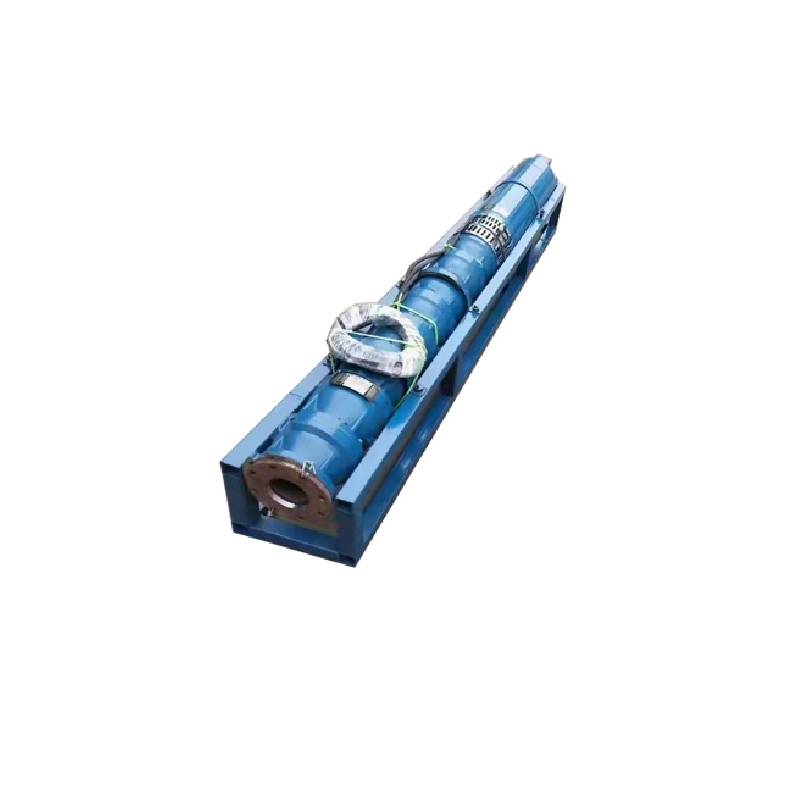Déc . 29, 2024 03:36 Back to list
Understanding the Functionality and Applications of Deep Submersible Pumps in Various Industries
The Deep Submersible Pump An Essential Tool in Fluid Management
In various industries, efficient fluid management is crucial for operational success. Deep submersible pumps have emerged as one of the most effective solutions for extracting or managing liquids from significant depths. These pumps are designed to operate submerged in water or other liquids, making them particularly valuable in applications such as water supply, wastewater treatment, and mining. This article explores the design, operation, benefits, and applications of deep submersible pumps.
Design and Operation
Deep submersible pumps consist of a motor and a pump unit, both of which are located below the surface of the fluid to be pumped. This unique design allows the pump to effectively manage the pressure of the liquid column without the need for priming, as the motor is installed directly at the source. The pump typically has multiple stages, allowing it to lift water from greater depths by increasing pressure at each stage.
The motor used in submersible pumps is usually sealed to prevent water ingress, making it reliable even under high-pressure conditions. Additionally, the impellers are designed to handle varying flow rates and provide high efficiency, ensuring that large volumes of fluid can be pumped with minimal energy consumption. These pumps are typically driven by electric power, although there are variations that utilize hydraulic or pneumatic energy for more specific applications.
Benefits of Deep Submersible Pumps
One of the main advantages of deep submersible pumps is their ability to operate efficiently at great depths. Traditional surface pumps typically face limitations when it comes to lifting fluids from significant depths, leading to reduced efficiency and increased operational costs. In contrast, deep submersible pumps can reach depths of hundreds of meters, making them ideal for deep well applications and underground water extraction.
Another significant benefit is the reduced noise pollution associated with submersible pumps. Since the motor is submerged, the noise generated during operation is greatly minimized when compared to conventional surface pumps. This characteristic makes them suitable for urban environments and residential areas where noise considerations are crucial.
deep submersible pump

Furthermore, deep submersible pumps are designed to handle a wide range of fluids, including clean water, wastewater, and even abrasive fluids. Their robust construction allows them to manage not only pure water but also corrosive materials, making them versatile for various applications.
Applications
Deep submersible pumps are utilized across a wide spectrum of industries. In agriculture, they are essential for irrigation systems, ensuring that crops receive the necessary water, even from deep well sources. In municipal water supply systems, these pumps deliver water to treatment facilities or directly to consumers.
In the wastewater management sector, deep submersible pumps play a critical role in the transportation and treatment of sewage and industrial wastewater. Their ability to handle solids and abrasives makes them particularly valuable in this context, as they help maintain efficient operations in treatment plants.
The mining industry also heavily relies on deep submersible pumps for dewatering applications. They help remove water that accumulates in mining excavations, thereby ensuring safety and enhancing productivity.
Additionally, deep submersible pumps are increasingly used in geothermal energy extraction and other innovative renewable energy applications, thus contributing to sustainable practices.
Conclusion
Deep submersible pumps represent a vital technology in modern fluid management. Their design efficiency, operational benefits, and versatility make them indispensable in various applications, from agriculture to industrial usage. As industries continue to face challenges related to water management and environmental sustainability, the role of deep submersible pumps will undoubtedly become more prominent. By adopting this advanced technology, businesses can enhance their operational effectiveness while contributing to responsible resource management.
-
Submersible Water Pump: The Efficient 'Power Pioneer' of the Underwater World
NewsJul.01,2025
-
Submersible Pond Pump: The Hidden Guardian of Water Landscape Ecology
NewsJul.01,2025
-
Stainless Well Pump: A Reliable and Durable Pumping Main Force
NewsJul.01,2025
-
Stainless Steel Submersible Pump: An Efficient and Versatile Tool for Underwater Operations
NewsJul.01,2025
-
Deep Well Submersible Pump: An Efficient 'Sucker' of Groundwater Sources
NewsJul.01,2025
-
Deep Water Well Pump: An Efficient 'Sucker' of Groundwater Sources
NewsJul.01,2025
-
 Submersible Water Pump: The Efficient 'Power Pioneer' of the Underwater WorldIn the field of hydraulic equipment, the Submersible Water Pump has become the core equipment for underwater operations and water resource transportation due to its unique design and excellent performance.Detail
Submersible Water Pump: The Efficient 'Power Pioneer' of the Underwater WorldIn the field of hydraulic equipment, the Submersible Water Pump has become the core equipment for underwater operations and water resource transportation due to its unique design and excellent performance.Detail -
 Submersible Pond Pump: The Hidden Guardian of Water Landscape EcologyIn courtyard landscapes, ecological ponds, and even small-scale water conservancy projects, there is a silent yet indispensable equipment - the Submersible Pond Pump.Detail
Submersible Pond Pump: The Hidden Guardian of Water Landscape EcologyIn courtyard landscapes, ecological ponds, and even small-scale water conservancy projects, there is a silent yet indispensable equipment - the Submersible Pond Pump.Detail -
 Stainless Well Pump: A Reliable and Durable Pumping Main ForceIn the field of water resource transportation, Stainless Well Pump has become the core equipment for various pumping scenarios with its excellent performance and reliable quality.Detail
Stainless Well Pump: A Reliable and Durable Pumping Main ForceIn the field of water resource transportation, Stainless Well Pump has become the core equipment for various pumping scenarios with its excellent performance and reliable quality.Detail
